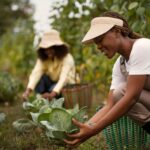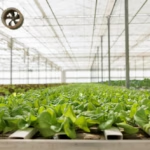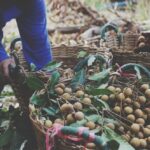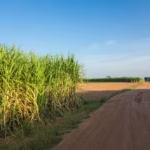Bioganic South Africa stands at the forefront of sustainable agriculture, pioneering innovative solutions that promote environmental stewardship, soil health, and organic farming practices. As a leading organization dedicated to advancing the principles of biodynamic and organic agriculture, Bioganic South Africa plays a pivotal role in shaping the future of farming in the region. In this article, we’ll delve into 20 key insights about Bioganic South Africa, shedding light on its mission, initiatives, and contributions to the agricultural landscape.
1. Mission and Vision:
Bioganic South Africa is committed to promoting regenerative agriculture practices that prioritize soil health, biodiversity, and ecosystem resilience. Its vision is to create a sustainable and thriving agricultural system that nourishes both people and the planet.
2. Biodynamic Certification:
Bioganic South Africa offers biodynamic certification services to farmers, producers, and processors who adhere to biodynamic farming principles. Biodynamic certification goes beyond organic standards, emphasizing holistic management practices that regenerate soil fertility and enhance biodiversity.
3. Organic Certification:
In addition to biodynamic certification, Bioganic South Africa provides organic certification services to farmers and businesses seeking to produce and market organic products. Organic certification ensures compliance with strict standards for soil health, crop management, and inputs usage.
4. Training and Education:
Bioganic South Africa offers training programs, workshops, and educational resources to farmers, agricultural professionals, and consumers interested in learning about biodynamic and organic farming practices. These initiatives help disseminate knowledge and promote sustainable agriculture principles.
5. Research and Development:
Bioganic South Africa collaborates with research institutions, universities, and agricultural organizations to conduct research on sustainable farming techniques, soil health, and biodiversity conservation. Its research initiatives aim to advance scientific understanding and innovation in regenerative agriculture.
6. Soil Regeneration:
A core focus of Bioganic South Africa is soil regeneration, which involves restoring soil health, fertility, and structure through natural and organic methods. Soil regeneration techniques include composting, cover cropping, crop rotation, and the use of biodynamic preparations.
7. Biodiversity Conservation:
Bioganic South Africa promotes biodiversity conservation on farms by encouraging the cultivation of diverse crops, creation of habitat for beneficial insects and wildlife, and preservation of natural ecosystems. Biodiversity enhances resilience, pest control, and ecosystem services in agricultural landscapes.
8. Community Engagement:
Bioganic South Africa engages with local communities, farmers’ associations, and stakeholders to raise awareness about sustainable agriculture and foster collaboration. Community-based initiatives promote knowledge sharing, capacity building, and social inclusion in the agricultural sector.
9. Market Access and Networking:
Bioganic South Africa facilitates market access for certified biodynamic and organic products by connecting farmers and producers with retail outlets, markets, and consumers. Networking events and trade fairs provide opportunities for producers to showcase their products and expand their customer base.
10. Climate Resilience:
Through its focus on regenerative agriculture practices, Bioganic South Africa helps farmers build climate resilience by enhancing soil carbon sequestration, water retention, and drought resistance. Climate-smart farming techniques mitigate the impacts of climate change on agricultural productivity and livelihoods.
11. Seed Sovereignty:
Bioganic South Africa advocates for seed sovereignty and the preservation of traditional, open-pollinated seed varieties. Supporting seed diversity and farmer-led seed saving initiatives strengthens food security, resilience, and agricultural biodiversity.
12. Organic Standards Advocacy:
Bioganic South Africa actively participates in advocating for robust organic standards and regulations at the national and international levels. Strong organic standards ensure consumer confidence, integrity, and transparency in the organic supply chain.
13. Farmer Support Services:
Bioganic South Africa provides farmer support services, including technical assistance, advisory services, and farm audits, to help farmers transition to biodynamic or organic farming practices. These services support farmers in adopting sustainable and profitable farming systems.
14. Food Security Initiatives:
Bioganic South Africa contributes to food security initiatives by promoting diversified, nutrient-rich food production systems that provide healthy and sustainable food options for communities. Supporting small-scale farmers and local food systems strengthens food sovereignty and resilience.
15. Policy Advocacy:
Bioganic South Africa engages in policy advocacy efforts to influence agricultural policies and regulations that support sustainable farming practices, environmental conservation, and rural development. Policy advocacy initiatives aim to create an enabling environment for regenerative agriculture.
16. Value-Added Processing:
Bioganic South Africa supports value-added processing and marketing opportunities for biodynamic and organic products, such as artisanal food products, herbal remedies, and natural cosmetics. Value-added processing adds economic value and diversification to farm enterprises.
17. Sustainable Supply Chains:
Bioganic South Africa promotes sustainable supply chains by fostering partnerships between producers, processors, retailers, and consumers committed to ethical, environmentally friendly practices. Sustainable supply chains ensure traceability, integrity, and fair trade principles.
18. Youth Engagement:
Bioganic South Africa encourages youth engagement in agriculture through educational programs, training opportunities, and mentorship initiatives. Engaging young people in sustainable farming practices fosters intergenerational knowledge transfer and revitalizes rural communities.
19. International Collaboration:
Bioganic South Africa collaborates with international organizations, networks, and agencies to exchange knowledge, share best practices, and promote global initiatives for sustainable agriculture, biodiversity conservation, and food sovereignty.
20. Continuous Innovation:
As a dynamic and forward-thinking organization, Bioganic South Africa is committed to continuous innovation and adaptation to address emerging challenges and opportunities in sustainable agriculture. Embracing innovation ensures relevance, effectiveness, and resilience in the face of changing environmental and social dynamics.
In conclusion, Bioganic South Africa plays a vital role in advancing sustainable agriculture, promoting environmental stewardship, and fostering resilience in South Africa’s agricultural sector. Through its holistic approach to soil regeneration, biodiversity conservation, community engagement, and market development, Bioganic South Africa is driving positive change and contributing to a more sustainable and equitable food system for present and future generations.







